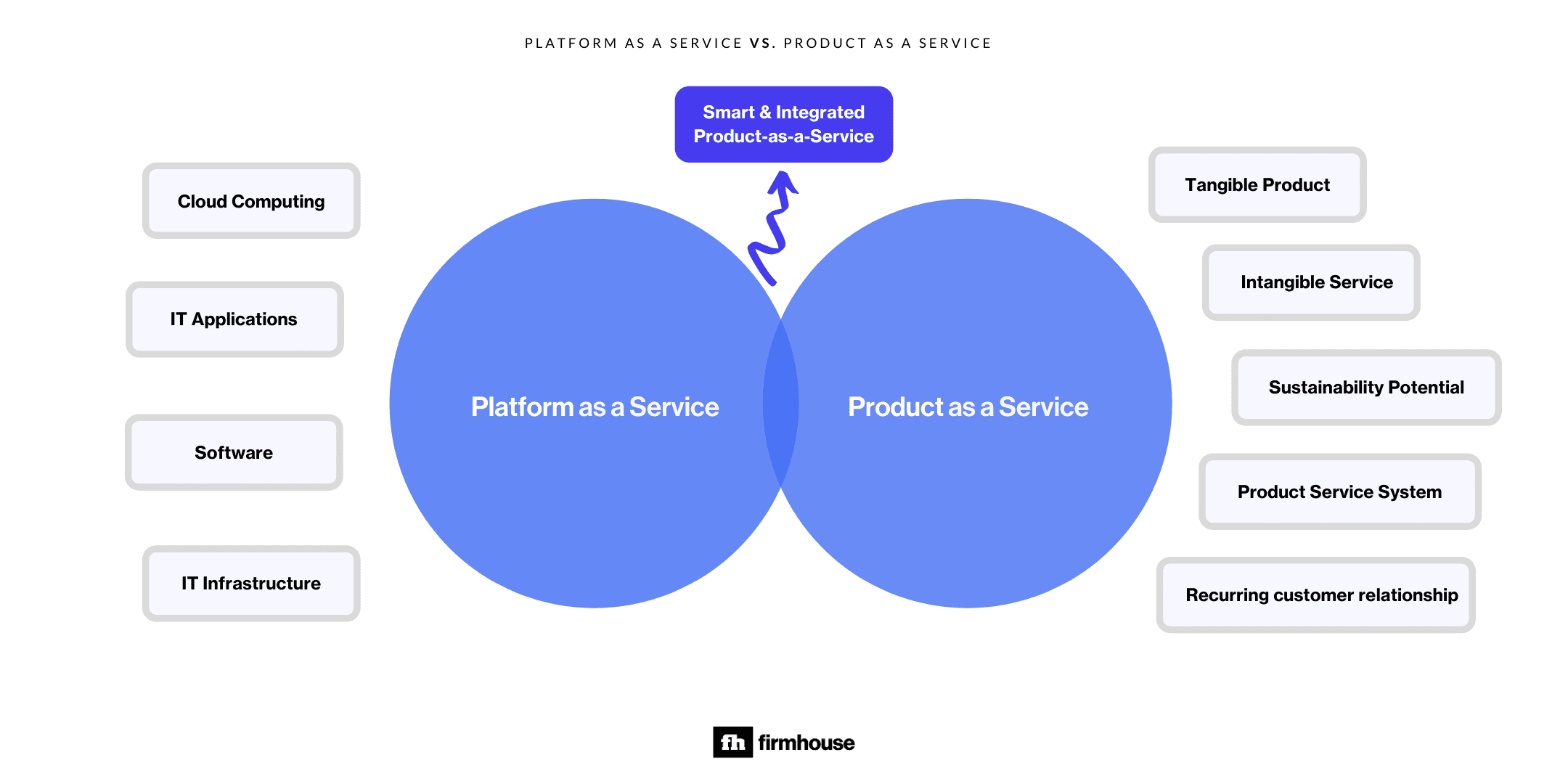Aug 27, 2024
The difference between Platform-as-a-Service (aPaaS) and Product-as-a-Service (PaaS)
Have you ever wondered what PaaS means? Two main acronyms stand out: Platform-as-a-Service and Product-as-a-Service. In this blog, we'll explain the difference.
Deidre Olsen
Senior Content Marketeer
Have you ever wondered what PaaS means?
Well, it can actually mean several things. However, two main acronyms stand out:
Platform-as-a-Service
Product-as-a-Service
To get started, let's begin with a brief explanation of Platform-as-a-Service.
What is (application) Platform-as-a-Service (aPaaS)?
Platform-as-a-Service, also known as application Platform-as-a-Service (aPaaS), is an extension of the Software-as-a-Service (SaaS) model. PaaS allows for the use of applications hosted remotely through cloud computing or other software.
It provides a platform to run business applications on and is also used to develop, deploy, and control the complexity that comes with building and maintaining the entire infrastructure surrounding any IT application. With PaaS, you no longer have to deal with physical servers and hardware.
Since the underlying IT infrastructure is already written, coded, tested, and optimized, PaaS can offer a low-code environment where no developer is needed to create customer value. Both Platform-as-a-Service and Software-as-a-Service can be considered subdomains of Infrastructure-as-a-Service (IaaS).
What is Product-as-a-Service (PaaS)?
In contrast, Product-as-a-Service (PaaS) is a business model that focuses on the combination of tangible products with intangible services, where ownership of the product remains with the provider rather than being transferred to the customer or end-user. This model is also known by other terms such as Subscription Service, Access-Based Consumption, or Product-Service System.
In a Product-as-a-Service model, customers pay for what they need or use, focusing on the functionality that the product delivers rather than the product itself. PaaS allows for flexible consumption, where the customer pays for the value received without the responsibility of owning or maintaining the product.
Product-as-a-Service has numerous advantages
When the ownership of a product is not transferred to the customer, the Product-as-a-Service provider has a strong incentive to keep products in circulation for longer periods. In turn, the merchant is encouraged to invest in the durability and longevity of the products, leading to savings on materials, energy, and other resources.
By extending the life cycle of products, the PaaS model helps reduce waste and minimize resource consumption. This creates a more sustainable way of delivering value to customers. So, merchants that embrace a PaaS model can better align their financial goals with environmental responsibility.
On top of this, PaaS can provide more business value and enhance customer satisfaction. This happens primarily through extra services that make things more convenient for the customer, as well as through the use of smart, connected products.
By providing usage information to the manufacturer, personalized user advice can be offered, improving performance and extending the product's lifespan. Additionally, preventative maintenance becomes easier to implement. This doesn’t require building a significant IT infrastructure from scratch. Instead, you can simply integrate existing layers into your current system with solutions from platforms like Firmhouse.
With frequent client interactions, you can adapt your product to better meet customer needs, all while strengthening your relationship with them. PaaS offers merchants a steady, recurring income stream and lowers the entry barriers for new customers, as there’s no initial investment required from their perspective.
In summary, Product-as-a-Service (PaaS) presents opportunities for merchants to boost revenue, enable product customization, create recurring revenue streams, and deliver greater value by allowing customers to pay for what they use. It also enhances the sustainability and circularity of products, providing a more comprehensive end-to-end experience with deeper insights and reduced operational costs. Ultimately, PaaS can increase the profitability of the product over its lifetime.

If you’re eager to explore more or ready to launch a Product-as-a-Service, sign up on our website to start using our products. For a personalized solution, please feel free to contact our team.





